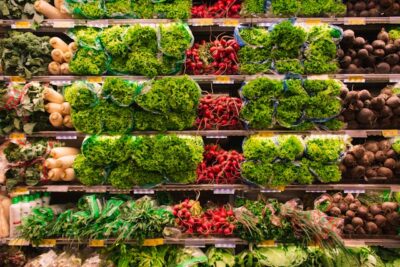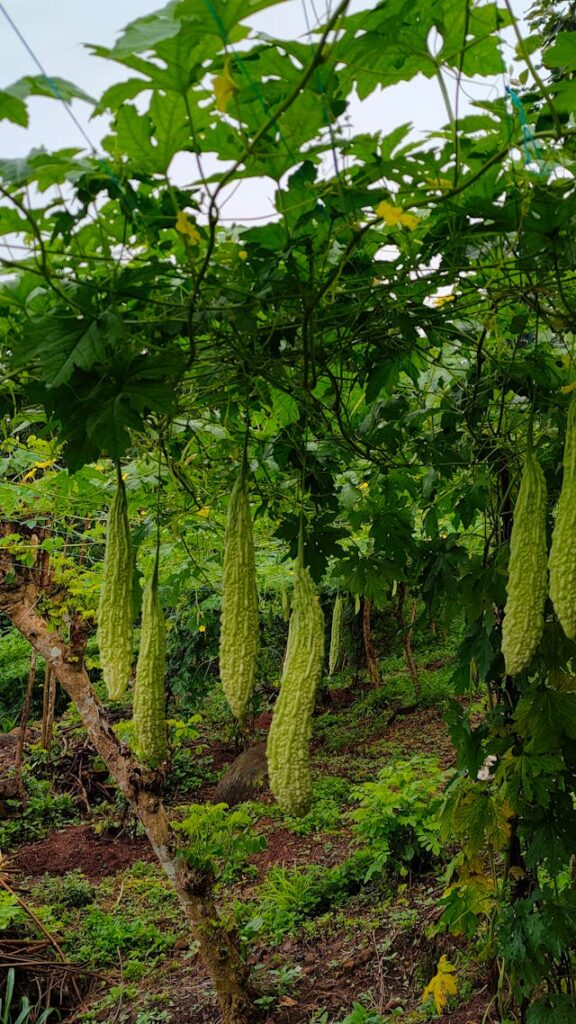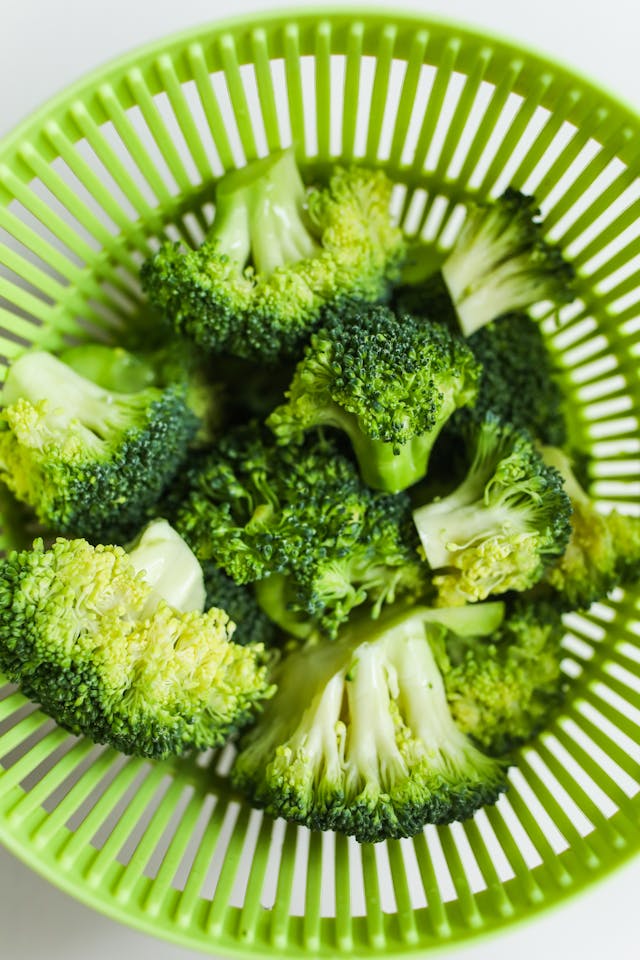Plants have been around much longer than our species and have developed ways to protect themselves.
Plants are little mad chemists that have concocted thousands of natural pesticides to deter predators.
Just like animals, plants don’t want to be eaten. Especially their roots, stalks, stems, leaves, and seeds.
So, they developed chemical compounds to disable or kill insects, bugs, and animals.
We consume 10,000 times more natural plant pesticides than the kind sprayed on them. The plant itself is the problem.

How do they affect us? Humans with a healthy metabolism can detoxify them for a while but eventually they will start accumulating and causing issues. These are pesticides.
Plants cause health issues, especially those with compromised immune function and poor metabolic health.
We have been told our entire lives that fruits and vegetables are great for us, but they are not benign.
People with autoimmune issues seem to be very vulnerable to plant toxins.
They won’t kill you today, but slow poison is still poison.
Most of the fruits and vegetables in the store today didn’t exist 10,000 years ago.
We can survive on them in emergency situations but we can’t thrive on them.
Pretty much everything in a grocery store is a plant or comes from plants. Some Include:
Bread, Chips, Cereal, Pasta, Rice, Bakery Items, Pizza, anything with flour, etc.
There aren’t any nutrients in plants we can’t get from meat but there are nutrients in meat we can’t get from plants.
Vegetables are Full of Natural Pesticides
Vegetables are plants just like any other plant you see in the wild that have defenses to protect themselves from predation.
We are told they are loaded with nutrients that are great for us. We aren’t told about their ani-nutrients. What’s an anti-nutrient?
Well, it’s an invader the body doesn’t want that causes our internal antioxidant glutathione to crank up to get rid of the attacker.
So, vegetables are not antioxidants. They have toxins that turn on our native antioxidant system. So, you can call vegetables pro-oxidants.
When you are healthy metabolically and you eat a plant/vegetable you ingest some of these pro-oxidants and they will get detoxified by your glutathione and leave your body as waste.
But continuing to consume these antinutrients day after day the natural defense system wears down over time. This is where the problems begin.
Many of these toxins are linked to the cause of a leaky gut because you get perforations in the bowel where molecules enter the bloodstream.
These perorations allow foreign substances to get in the bloodstream, such as more antinutrients and food particles.
This is what triggers an autoimmune response in your body to fight these invaders.
The bigger problem is when this gets chronic, your immune system starts attacking and killing good cells and then metabolically things start going south.

Here Are Some of the Top Antinutrients:
Sulforaphane
Glucosinolate and sulforaphane are compounds that you will find in cruciferous plants. Vegetables like:
- Broccoli
- Cauliflower
- Kale
- Brussels sprouts
- Cabbage
- Bok choy
- Collard greens
- Turnips
- Rutabaga
- Arugula
- Watercress
- Kohlrabi
- Radishes
- Mustard greens
These vegetables create a compound called Sulforaphane.
We are told it’s good for us because it’s an antioxidant, but as I mentioned earlier, it triggers our native antioxidant glutathione because invaders arrived.
Sulforaphane is so toxic on its own the plant doesn’t store sulforaphane because it would kill the plant.
So, what it does is store the two compounds needed to make sulforaphane in separate compartments.

Glucosinolates and Myrosinase are the two compounds needed to create sulforaphane.
When the plant is under attack and being eaten these two chemicals mix creating the poison to stop or kill the predator.
Yes, this will kill insects and bugs instantly but what about us?
Well, these toxins play the long game in humans taxing our detoxification system, causing irritable bowel syndrome, leaky gut, and autoimmune reactions.
You can boil these vegetables to reduce the amount of sulforaphane, but it only decreases about 50% and you can’t eliminate it.
Oxalates
Oxalates are naturally occurring compounds found in a variety of plants, including many fruits, vegetables, nuts, seeds, and grains.
Oxalates can bind to minerals like calcium, forming insoluble tiny crystals that look like spears.

When these crystals accumulate in the body, they can contribute to the formation of kidney stones, a painful condition that affects the urinary tract.
Additionally, some individuals may be more sensitive to oxalates and experience symptoms such as digestive discomfort or exacerbation of certain health conditions like gout or rheumatoid arthritis.
Therefore, it’s important to be mindful of oxalate intake, especially for those with a history of kidney stones or other related health concerns.
Oxalates are compounds that you will find in various plants. Vegetables like:
- Spinach – VERY HIGH
- Swiss chard
- Beet greens
- Rhubarb
- Kale
- Collard greens
- Parsley
- Okra
- Purslane
- Turnip greens
- Potatoes
Oxalates, unfortunately get you on the way in and on the way out.
This brings to something called oxalate dumping. Oxalate dumping refers to a phenomenon where the body rapidly releases accumulated oxalates after you quit eating them.
When oxalate levels rise too quickly due to dumping, it can potentially make things worse, leading to symptoms such as increased pain, urinary discomfort, and gastrointestinal disturbances.
Proper management and awareness of oxalate intake are crucial for individuals with autoimmune issues and health concerns.
Phytates (Phytic Acid)
Phytates are plant acids that are not found in animals. They are natural pesticides for plants.
Phytic acid can be a really damaging compound for the body as well as for our digestive system.
Phytates can bind minerals such as calcium, zinc, iron, and magnesium, forming insoluble complexes that inhibit their absorption in the digestive tract.
This interference with mineral absorption can lead to deficiencies over time, potentially contributing to conditions such as osteoporosis, anemia, and impaired growth in children.
They inhibit the activity of certain digestive enzymes, further impairing nutrient absorption.
So, when you’re eating things like nuts that can latch on and pull things like calcium, zinc, copper, magnesium out of the body, your body isn’t getting those nutrients anymore.

You can soak, sprout or ferment nuts, seeds, or grains to reduce the amount of phytates but you’re never going to eliminate it.
Phytates are compounds that you will find in various plants. Vegetables like:
- Spinach
- Beetroot
- Sweet potato
- Pumpkin
- Carrots
- Peas
- Beans (including kidney beans, black beans, pinto beans, etc.)
- Lentils
- Chickpeas
- Soybeans
- Green beans
- Brussels sprouts
- Broccoli
- Cauliflower
- Swiss chard
Glycoalkaloids
Glycoalkaloids are natural compounds found in certain plants. One of the primary concerns with glycoalkaloids is their toxicity.
They can cause symptoms ranging from mild gastrointestinal discomfort to more severe effects like vomiting, diarrhea, and even neurological symptoms.
The most well-known glycoalkaloid associated with toxicity is solanine, found mostly in potatoes.

Solanine poisoning can occur when potatoes are exposed to light and start to turn green, indicating increased solanine levels.
They have also been linked to skin rashes, itching, or respiratory symptoms upon consumption of foods containing glycoalkaloids.
Glycoalkaloids can interfere with the body’s ability to absorb certain nutrients, particularly minerals like calcium and magnesium.
Prolonged consumption of glycoalkaloid-rich foods in excess can contribute to nutrient deficiencies over time.
Glycoalkaloids are compounds that you will find in various plants. Vegetables like:
- Potatoes
- Tomatoes
- Eggplants (aubergines)
- Bell peppers (Capsicum)
- Goji berries (wolfberries)
- Ground cherries (Physalis)
- Hot peppers (Capsicum)
- Garden huckleberries
- Green tomatoes
- Black nightshade berries
Other Anti-Nutrients
There are thousands more of these antinutrients I will cover more in further articles.
Just one vegetable I can share is cabbage. Cabbage has 49 known carcinogenic compounds. Those are just the known ones.

These compounds harm humans in many ways including neurotransmitter function, cellular disruption, hormone disruption, leaky gut, autoimmune dysfunction, and many other issues that will be covered here.
Now knowing we don’t need them to live and thrive, why eat them, and test the different doses these plants give you?
Plants are a bit like medications, but medications have been tested and have proper dosing instructions.
We don’t have instructions or side effect papers with vegetables.
 Growing Younger Everyday What Works For Me
Growing Younger Everyday What Works For Me





